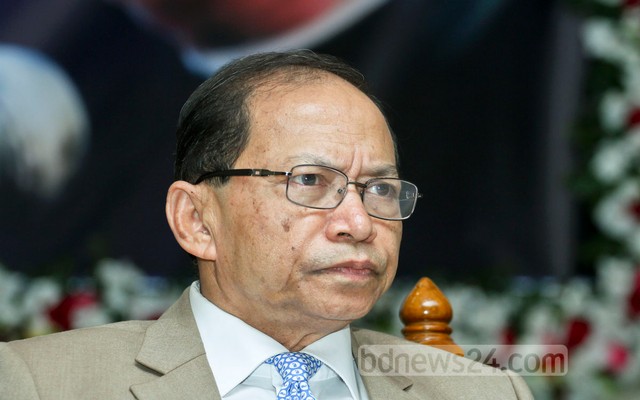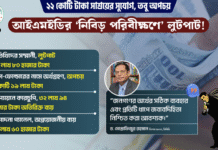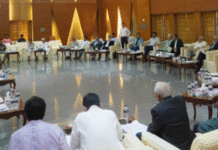Chief Justice SK Sinha has urged politicians, journalists and lawyers to refrain from making adverse remarks about the judiciary.
He made the appeal at a memorial meeting on the occasion of the 90th birth anniversary of former Supreme Court advocate late Shaukat Ali Khan on Wednesday.
“Today we claim there is no democracy in the country. Democracy will prevail only if there is rule of law and if the judiciary is independent.
“Judiciary alone cannot protect its independence or establish rule of law… it needs the help of lawyers,” the chief justice said.
Pointing out that late Shaukat Ali Khan was in politics, Justice Sinha said his political ideology was never reflected in his legal profession.
“It hurt me when I heard some politicians make adverse comments on the judiciary. I firmly believe there has never been any aberration on the part of the judiciary. There are three branches of the government. Two branches at times might have deviated from the course as there was Martial Law. But the judiciary never lost its morality.”
Justice Sinha said even the bar councils these days were sharply divided.
He said that on various issues even lawyers never hesitated to criticize the judiciary, which is really sad.
Addressing lawyers, the chief justice said, “I expect that those of you who are in politics will not make any comments criticizing the judiciary. I can vouch that this judiciary is very strong.”
“These criticisms may temporarily affect the judiciary, but the rule of law it has established will never falter.”

The chief justice appealed to the media to ensure that the reputation of the judiciary would never be blemished.
He said it was unfortunate that media houses have turned into business ventures.
He cited two examples of “ethical conduct” while making a strong case for journalistic ethics.
“Roosevelt was one of the most successful presidents of the United States. But very few knew that he was a polio victim. He could not walk without crutches or holding on to some aides. But the American media never published any pictures of him walking because it was a matter of ethics.”
He also narrated another incident of how the media in the UK refrained from publishing a picture of the then deputy prime minister George Brown tipping over in inebriated condition while coming out of the parliament.
“If the judiciary is constantly engaged in contempt proceedings against media houses and journalists, then how will it handle thousands of other cases?” he asked.
Source: Bd news24










